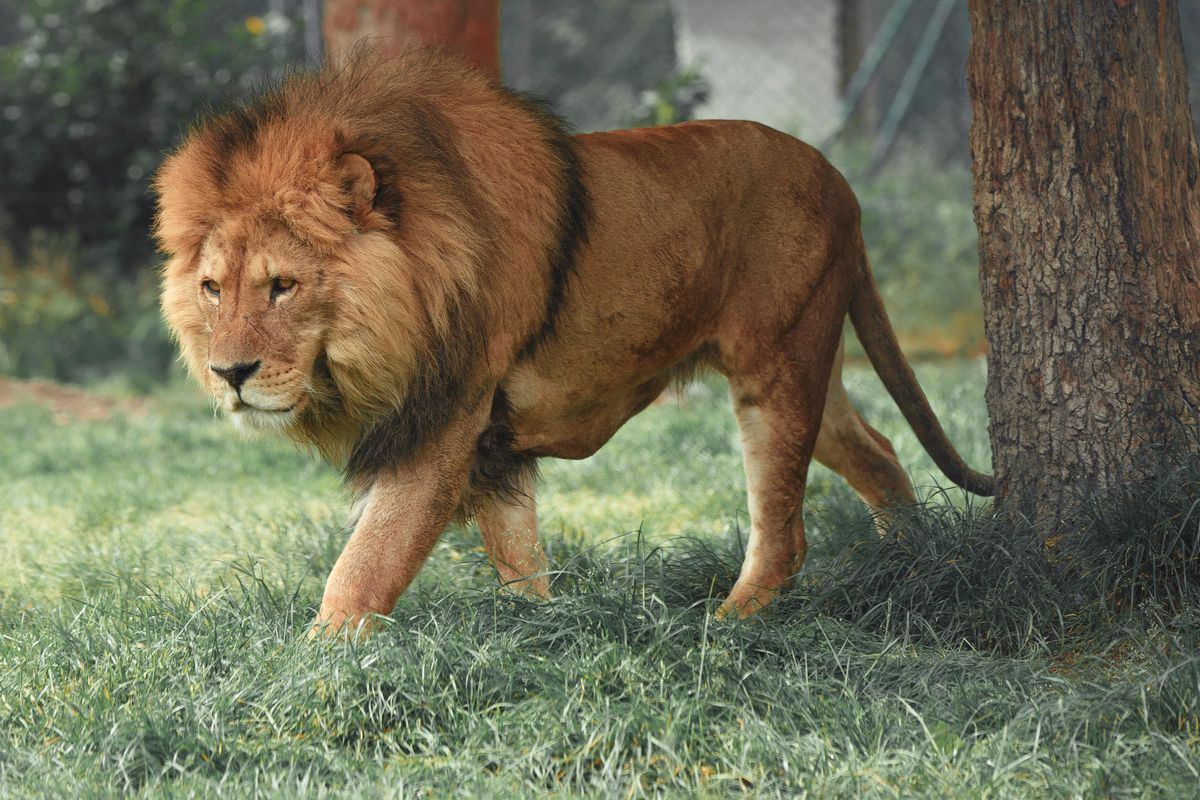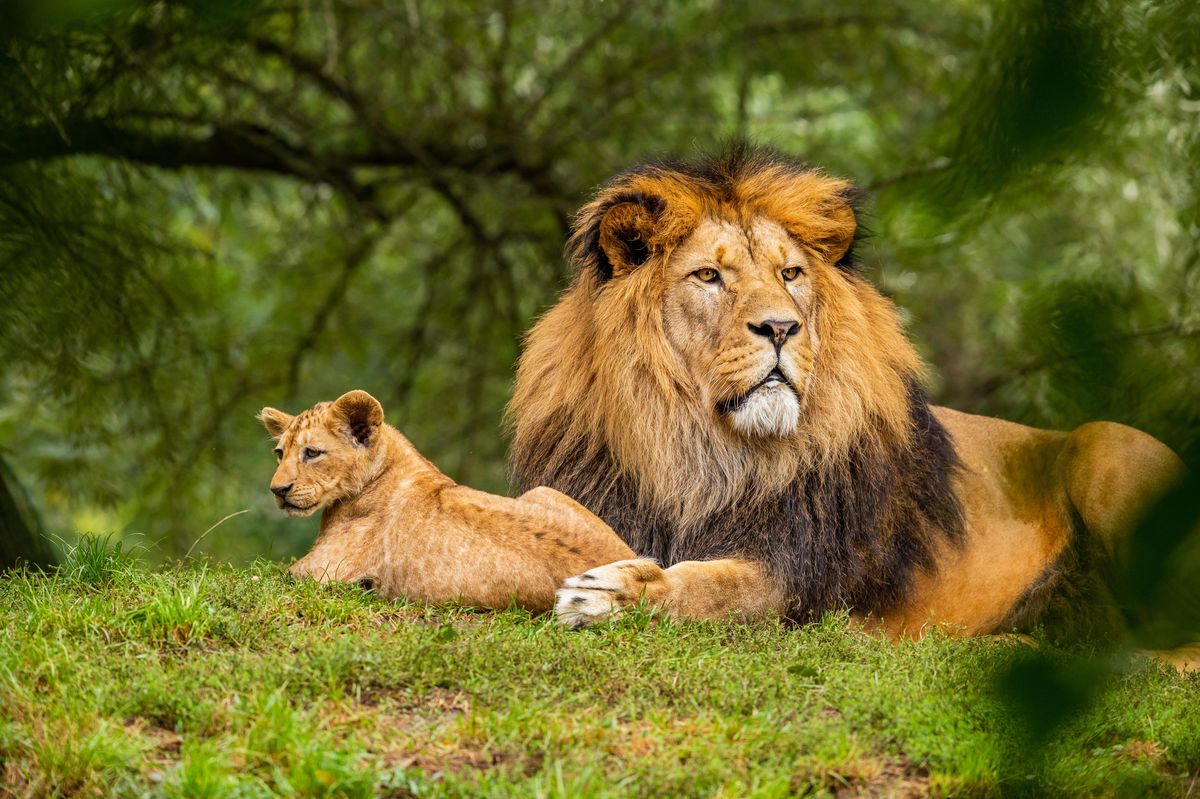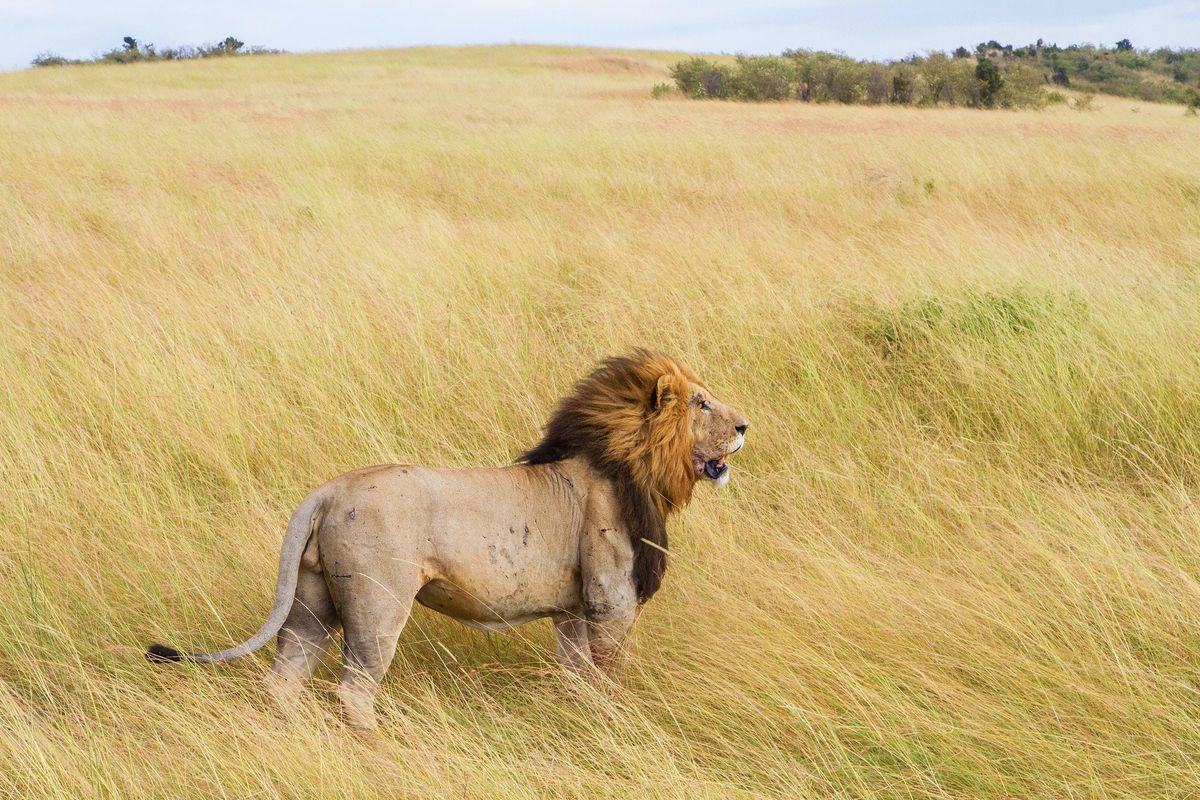Trophy hunting has no place in South Africa’s new deal for wildlife
South Africa was a role model for wildlife conservation and eco-tourism. But over the last decade, the country has come under the harsh international spotlight because of its inhumane captive lion breeding industry.

World Animal Protection has moved the world to protect animals for more than 55 years. World Animal Protection works to give animals a better life. The organization's activities include working with companies to ensure high standards of welfare for the animals in their care; working with governments and other stakeholders to prevent wild animals being cruelly traded, trapped or killed; and saving the lives of animals and the livelihoods of the people who depend on them in disaster situations.
World Animal Protection influences decision-makers to put animal welfare on the global agenda and inspires people to change animals' lives for the better. More information on World Animal Protection can be found at: http://www.worldanimalprotection.us/
Written by Edith Kabesiime, Wildlife Campaign Manager.
For many years, South Africa was a role model for wildlife conservation and eco-tourism. But over the last decade, the country has come under the harsh international spotlight because of its inhumane captive lion breeding industry, where lions are bred and raised in captivity for commercial purposes, including canned trophy hunting, cub petting, walking with lion experiences, and trade in lion bones for traditional medicine.
That is why May 2, 2021, was seen as a historical day by many conservation and welfare organizations that have protested South Africa's abhorrent captive lion breeding industry and persistently called for its closure.
Finally, Ms. Barbara Creecy, the Minister at the helm of South Africa's Department of Forestry Fisheries and Environment (DFFE), had announced that the government would put an immediate halt to the domestication of lions and the commercial exploitation of captive lions, as well as establish a process to close captive lion facilities.
Following this landmark announcement, DFFE has swung into action and embarked on implementing a plan of action that will guide the industry's closure. Within three months since her announcement, the Minister has publicly released a draft policy position paper and requested public comments.
While the intention to halt the commercial exploitation of captive lions and other iconic species such as elephants, rhinos, and leopards should be applauded, South Africa's new draft position includes an alarming priority. One of its five priority conservation policy interventions is to "re-position South Africa as a destination of choice for legal, humane, regulated, and responsible hunting."

There is a general consensus that the commercial captive lion industry damages South Africa's reputation, threatens the survival of lions, negatively impacts tourism, risks public health and safety, and disregards the opinions of many communities which spiritually value lions. It was this consensus that led to the recommendation to shut down the captive lion breeding industry.
But if redeeming the country's international reputation as one of the key considerations by the Minister, why would South Africa then take this policy stance that will continue to treat wild animals as mere commodities?
It is common knowledge that the systematic lack of scientific data on the status of wild populations and ineffective managing and monitoring of trade is impairing current sustainability efforts. There are increasing concerns that this default approach to sustainable development and conservation efforts is not tenable.
The risks presented by the so-called "sustainable use" of wildlife - through cruel consumptive practices such as trophy hunting, for example - to animal welfare, biodiversity, and financial security are manifold.
Evidence suggests that the economic benefits gained from trophy hunting are not as significant to the South African economy as they are sometimes portrayed. It is also becoming less economically viable due to negative public perceptions, declining wildlife populations, trophy import bans in consumer markets, airline transportation bans of trophy shipments, and because of a wide range of ethical and ecological controversies featured in published studies in recent years.

Shifting away from a reliance on trophy hunting will have its challenges. Still, there is a humane alternative - the growing demand for non-consumptive 'wildlife friendly' tourism, which is already a successful sector in its own right.
In a post-COVID-19 world, the concept of a 'new deal' for wildlife in South Africa provides an ideal, realistic opportunity to generate government funding for responsible tourism management and conservation to safeguard ecosystems better.
If responsibly managed, the development of wildlife-friendly tourism and the removal of the trophy hunting industry has the potential to enhance South Africa's international reputation as a global conservation leader. It would reposition the country as an even more competitive destination of choice for responsible travelers and tour operators.
Moving towards ending the commodification and cruel exploitation of wildlife could be South Africa's ultimate and more ambitious wildlife protection goal. We can no longer reduce wild animals to commodities to be cruelly exploited by humans without regard for their lives or welfare.
South Africa needs to enact environmental policies that protect individual wild animals and allow them the right to live in the wild. Wild animals are sentient beings, and their intrinsic value should be recognized as an essential component in ensuring the survival of species and the protection of the environment. This is the real 'new deal' for wildlife, people and the planet.


